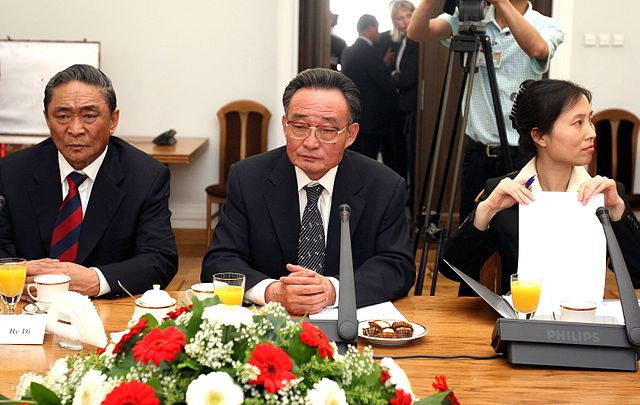Wu Bangguo, the former chairman of China's National People's Congress (NPC) Standing Committee and one of the most influential figures in the Chinese political landscape, passed away at the age of 84. Wu died in Beijing at 4:36 a.m. (local time) on Tuesday after a prolonged illness. His death marks the end of an era for a key figure in China's leadership during the transformative years of the country's economic and political development.
Wu Bangguo's political career spanned several decades, and his legacy is closely intertwined with the growth and reforms of modern China. Born in July 1941 in Feidong, Anhui Province, Wu graduated from Tsinghua University in 1967 with a degree in radio engineering before embarking on a career in Shanghai's electronics industry. His rise through the ranks saw him hold critical positions in both the Communist Party of China (CPC) and the State Council, influencing policy at the highest levels.
Wu served as a member of the Political Bureau and the Secretariat of the 14th CPC Central Committee and later became a key player in the Standing Committee of the Political Bureau for both the 16th and 17th central committees. His prominence peaked when he was appointed as the chairman of the NPC Standing Committee, a role he held from 2003 to 2013, during which he was instrumental in shaping legislative policies that aligned with the CPC's objectives.
During his tenure, Wu Bangguo was known for his staunch opposition to adopting Western political models. At a 2011 NPC seminar, he famously outlined five principles that China must not implement, including a multiparty system, federalism, and the separation of powers. His commitment to this stance underscored his belief in the supremacy of the CPC's governance model and his desire to maintain a distinctly Chinese approach to development.
Wu's efforts in advancing China's legislative framework were highlighted by his involvement in the revision of the Anti-Secession Law in 2005. This law provided a legal foundation for China's stance on Taiwan, specifying conditions under which Beijing might resort to "non-peaceful means" to achieve reunification with the island. The Anti-Secession Law remains a cornerstone of China's policy towards Taiwan, which continues to be a contentious issue in international relations.
In addition to his legislative achievements, Wu Bangguo played a crucial role in advancing China's economic development strategies. He was a pivotal figure in the early development of Shanghai's Pudong New Area, a decision that transformed Shanghai into a global financial hub and accelerated the city's economic growth. His work in this area was in line with the vision of former Chinese leader Deng Xiaoping, who championed China's economic opening to the world.
Wu also served as vice premier of the State Council from 1995 to 2002, where he oversaw significant reforms in state-owned enterprises and major infrastructure projects, including the Three Gorges Dam. His contributions during this period were critical in laying the groundwork for China's transition towards a market-oriented economy while maintaining the government's control over key sectors.
An official obituary jointly issued by the CPC Central Committee, the NPC Standing Committee, the State Council, and the National Committee of the Chinese People's Political Consultative Conference lauded Wu as a "time-tested and loyal communist soldier, an outstanding proletarian revolutionary, statesman, and leader." It highlighted his unwavering commitment to the Party's principles and his efforts in promoting the rule of law and socialist democracy with Chinese characteristics.
After his retirement in 2013, Wu Bangguo continued to express his loyalty to the CPC and firmly supported President Xi Jinping's leadership. He was noted for his dedication to studying "Xi Jinping Thought on Socialism with Chinese Characteristics for a New Era," demonstrating his alignment with the current leadership's vision for China's future.






